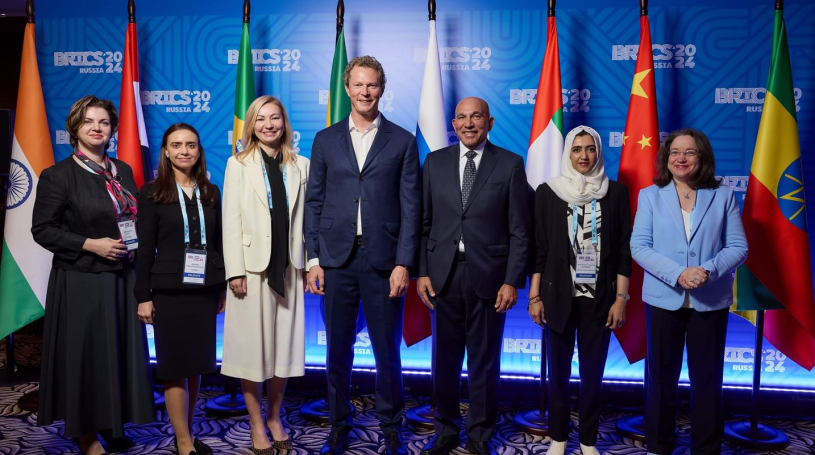UAE participates in meeting of tax officials, experts from BRICS countries in Moscow
MOSCOW, 3rd October, 2024 (WAM) -- The UAE, represented by the Federal Tax Authority (FTA), participated in the sessions of the meeting of tax officials and experts from the BRICS countries held in Moscow, Russia, from 24th to 26th September, 2024, with the participation of delegations from the tax authorities of the group.
Khalid Ali Al Bustani, Director General of the FTA and head of the UAE delegation at the meeting, emphasised that the BRICS meetings are of great importance as the group serves as an effective mechanism to enhance global prosperity. The Authority's participation reflects a commitment to maintaining balanced strategic and economic relations to keep pace with ongoing developments in the global system. He highlighted the significance of the discussions and topics addressed during the meeting, which contribute to enhancing constructive cooperation in the tax and financial fields among member states in line with their future directions through the exchange of experiences and information among the tax authorities of the group.
During the participation in the BRICS tax officials and experts meeting, Mikhail Mishustin, Prime Minister of Russia, received the Authority's delegation, where the importance of joint cooperation, particularly in the tax field and enhancing economic growth pathways, was emphasised. The delegation also held a meeting with Daniil Yegorov, Director General of the Federal Tax Service of Russia, during which ways to cooperate and exchange expertise in the tax field were discussed.
The meeting of the BRICS tax officials and experts highlighted the tax regulatory frameworks and financial policies followed by each BRICS country and discussed ways to improve the efficiency of the global tax sector in general.
The meeting featured several specialised sessions and discussions focused on tax aspects, including a customer-centric approach to tax management and service delivery, data collection and utilisation, mechanisms for modernising and developing value-added tax, human resources practices within tax administrations, and the participation of youth and women in the tax network.



